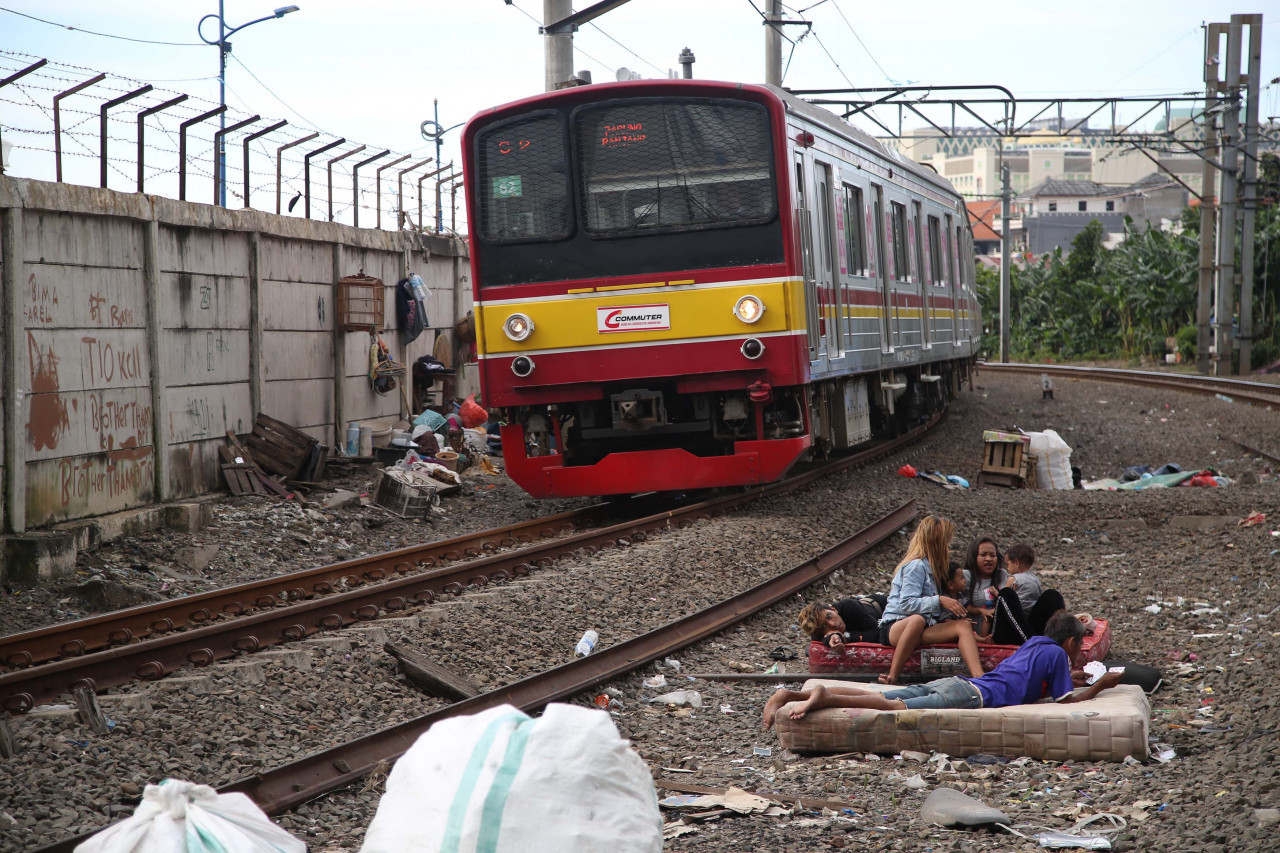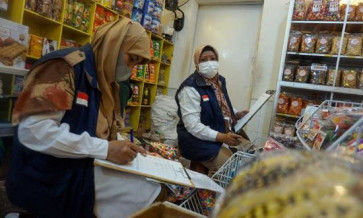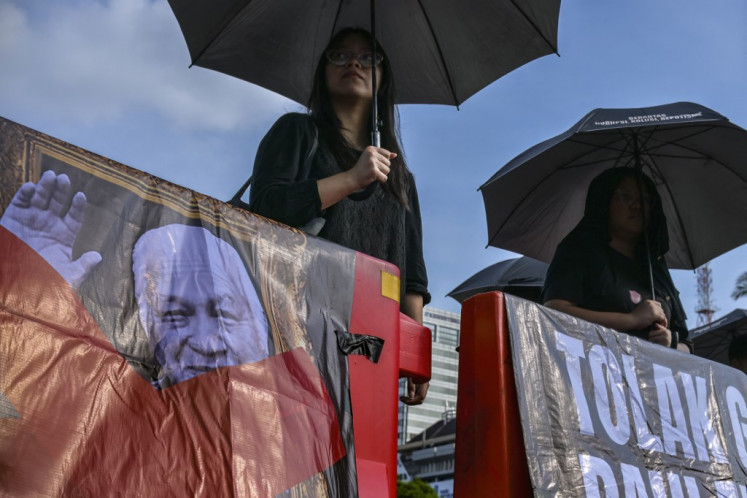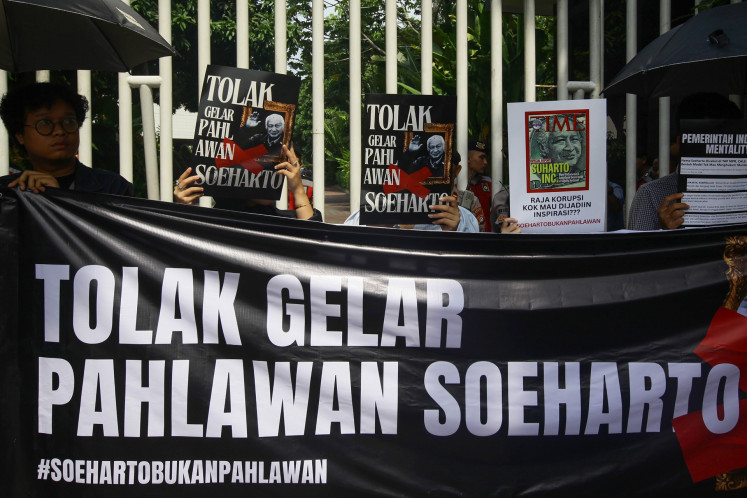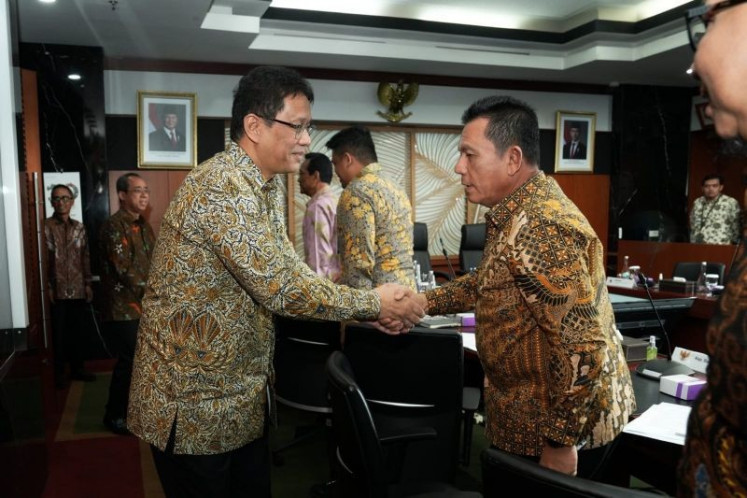Popular Reads
Top Results
Can't find what you're looking for?
View all search resultsPopular Reads
Top Results
Can't find what you're looking for?
View all search resultsThe SDGs and the future of global financing
Achieving the SDGs will require an unprecedented amount of resources that cannot be just ensured by bringing the fiscal deficit back to under 3 percent of gross domestic product (GDP) as prescribed by the law.
Change text size
Gift Premium Articles
to Anyone
There are plenty of examples of how better, stronger, fairer and cleaner a nation Indonesia could become in the next decade.
From innovative youth-focused entrepreneurship programs being implemented through successful partnerships to the introduction of waste management in early childhood development education, climate vulnerability assessments for fragile zones, a number of inclusive scholarships and attempts at promoting the so-called refuse-derived fuel, there is no doubt that Indonesia is rich in innovative policy-making.
On July 15 Indonesia will present its third Voluntary National Review (VNR), itself an important outcome that makes the country a global trailblazer in terms of reporting on its efforts and challenges to achieve the Sustainable Development Goals (SDGs).
Kudos to the teams working on it at the National Development Planning Agency (Bappenas) and to all the other government ministries and agencies that made a huge effort compiling this massive document.
It is rich in data and in-depth analysis as much as honest as its drafters can be while taking on the difficult undertaking of balancing achievements with the numerous existing challenges that are still preventing the country from going full steam toward a more just and sustainable development.
The overall data, in many aspects, could be comforting if not even encouraging because the path taken by the country in last decade is an undeniable success story in terms of progress against poverty and inequality.
Yet the strides achieved should not overlook the many areas that need to be urgently addressed, a situation further compounded by a pandemic that is still punching the country extremely hard.
There is no doubt that Indonesia will escape a full knockout and slowly, provided the rapid rollout of vaccines, something that unfortunately cannot be taken for granted, the country will return to its promising economic growth.
This is after all the bet that Finance Minister Sri Mulyani Indrawati is making as is evident in the presentation of the 2021 budget and in the general outlines so far shared about next year’s budget.
If you are wondering why I am writing about economics and fiscal matters, it is because there is a simple, straightforward and outright clear link between the pursuit of the SDGs and the financial provisions for the next few fiscal years: money.
It is not rocket science, is it?
The bottom line is that achieving the SDGs will require an unprecedented amount of resources that cannot be just ensured by bringing the fiscal deficit back to under 3 percent of gross domestic product (GDP) as prescribed by the law, starting, as indicated by Sri Mulyani, in 2023 and with strong steps in that direction already taking shape.
I am not an economist but it seems that nations around the world, not only least developing countries or lower to middle economies but also the wealthiest nations, will need, again, an unprecedented flow of money to truly avoid erasing the years of constant progress against inequalities and truly build forward better.
What has been done so far by Jakarta in terms of alleviating the harshest impacts of the pandemic on the most vulnerable segments of the population, despite the fact that the administrative machine could not perform as it should have, something after all not quite unsurprising given the magnitude of the task, could in many ways be considered a world best practice.
It is true that the ongoing wave of COVID might have been prevented had the economy and society gone through tough lockdown measures but, honestly speaking, the call between livelihoods and lives is not an easy one to make.
Yet, once this wave is over, there will be a long steep way toward a full-fledged inclusive recovery that can build forward better by engaging and including the most vulnerable sections of the society.
A rush to balance the books might not be the wisest thing to do.
It did not work well in dealing with the aftermath of the subprime crisis in the United States nor did it work out well with the Euro crisis in the following years. In both cases, the return to austerity as the winning approach to achieve long-term high economic growth was devastating not only economically but also politically.
According to the new World Bank Country Partnership Framework for Indonesia, Indonesia, just to meet its nationally determined contributions (NDC), basically the country-led undertakings to fight climate change, needs a whopping US$20 billion per year while the resources available stand at $5 billion to $8 billion.
Perhaps this would explain the very disappointing choice Indonesia is still making on betting on coal to generate growth.
Other policy options in terms of innovative green financing are available and the country already proved its expertise here with its first sovereign green bond (sukuk) in 2018 for $1.25 billion and in 2019 for $750 million.
Yet the country cannot make it alone and that is why President Joko “Jokowi” Widodo’s upcoming participation in the Group of 20 summit in Rome can be significant in pushing for a rethinking of global financing.
Indonesia is absolutely showing the way to the rest of the world for having embedded the SDGs in its national plans by creating total alignment between the two for which it had conceived strong coordination mechanisms to mainstream the goals at all levels.
That is why the third voluntary national reviews (VNR) report is an important document to read. Nowhere else you could find a more compelling case that financing the SDGs is going to be the biggest challenge for the future prosperity of Indonesia.
This truth applies elsewhere.
With Indonesia at the helm of the G20 next year there is a big opportunity to start a new reflection about economic orthodoxy and the future of financing.
With a former central banker currently leading not only the G20 but also one of the nations that paid a very high price in terms of cutting public expenditure for the sake of fiscal austerity, perhaps President Jokowi and Sri Mulyani can start pitching a new economic mantra to achieve the SDGs while also laying the foundations for a new global financing effort to support a real global build back forward initiative.
That’s why they should be persuaded first that bringing the fiscal deficit under 3 percent of GDP too soon might not be the wisest choice to make for the future of their country.
***
The author writes on social inclusion, youth development, regional integration and the SDGs in the context of Asia Pacific.

